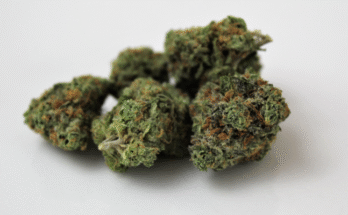Green Party minister Lorna Slater has put the cat amongst the pigeons by speaking the truth about the current unviable situation regarding drug laws in the United Kingdom.
She sparked controversy with a claim that drugs are not “inherently” dangerous, but that demonising them and criminalising their users is.
“Many celebrities and rich people use them, some well-known politicians have used drugs, so using drugs is not inherently dangerous, but using drugs becomes dangerous when the drugs are illegal because you can’t get them safely.”
And she is correct. Drugs are not inherently dangerous.
Drugs as tools
It has been told to us for years that drugs are bad, dangerous and addictive. However, the majority of people who consume drugs have overwhelmingly positive experiences, no negative impact on their health, and do not get addicted.
The truth is that drugs are tools. And while tools are generally very useful and can be used constructively, they can also be used destructively.
Just like a hammer or a knife, in the hands of someone who is immature, irresponsible and not supplied with accurate instructions, drugs can be destructive. But that does not mean we should demonise tools, whether it’s a knife or a drug.
Because the truth is that drugs were easily accessible for adults, well regulated and came with the proper education, harms from drug use would fall dramatically.
For example, pure heroin is very safe and can be used by mature, well-rounded adults with little negative effects. However, heroin that is cut with fentanyl and used alongside other drugs like alcohol (which can increase risk of respiratory problems) by people with a lack of social support and poor mental health, is obviously quite dangerous.

Take Dr Carl Hart, a drug researcher and author of the book Drug Use For Grown Ups. In his book, Hart explains how his recreational use of heroin is “like vacation, sex, and the arts” – just one of the tools that he uses to maintain a work-life balance.
Despite using heroin for up to 10 days in a row and even going through mild opioid withdrawal a number of times, Hart says that he continues to meet his responsibilities as an academic, husband, father, and taxpayer, writing in the book that he’s “better for” his drug use.
Drugs as medicine
There’s a growing perspective in modern society that the average person is in no position to self-medicate. We’re told that if it doesn’t come from a pharmaceutical company and is not prescribed by a doctor, then it shouldn’t be taken.
However, humans, like many animals, are actually rather good at self medicating.
And, in fact, many of the substances prescribed by doctors and packaged are pretty much the same as illegal drugs. Take Adderall, for example, which contains an amphetamine that has almost the exact same effects as methamphetamine (crystal meth).

Opioids like morphine are very similar to heroin. Medical cannabis and street cannabis are, you guessed it, exactly the same. So what makes one a dangerous ‘drug’ and the other a safe ‘medicine’?
Well, not much. The only real difference is governmental approval.
This has been a rather dishonest deception, as the emergence of the science of psychedelic medicines like psilocybin, ketamine and MDMA is starting to demonstrate, very clearly. But will the UK take any notice?
Changing paradigm
The truth always comes out in the end, and it is now becoming apparent that the MDMA and magic mushrooms experiences many of us have had over the years may have had more medicinal value than we realised.
In fact, magic mushrooms – you know, the ones that grow abundantly in the UK but can get you sentenced to 7 years in prison for picking – are one of the most exciting new medicines being trialled for depression, end of life therapies, addiction, and more.
Ketamine is emerging as one of the most effective treatments for people with depression and bipolar disorder, and is available at clinics in Bristol and London – though you sure as hell can’t get it on the NHS.
Just like cannabis, which was made legal for various medical conditions in 2018, yet only 3 prescriptions have been given on the NHS.
Obviously, for many (myself included), the fact that these substances were illegal has made little difference to whether we used them or not.

In some ways the illegality made consuming them more appealing and exciting. We knew the drugs laws were stupid and did it anyway. And we did not die. We had good times.
The tapestry of lies created in the UK and the rest of the world around drug use is slowly but surely falling to pieces.
The statements made by Lorna Slater represent another small step towards rational drug policy. So thank you, Lorna.
Reclaim your health
Thomas Jefferson, Founding Father and third president of the United States, once said,
“If people let the government decide which foods they eat and medicines they take, their bodies will soon be in as sorry a state as the souls of those who live under tyranny.”
And that is exactly what has happened over recent decades, with astronomical rates of mental health disorders, metabolic disease and cancer. By outsourcing our health to the state, we have denied responsibility for our own health.
However, there is now a swing in the opposite direction as we see a growing trend of people taking back control over their health, whether it’s through exercise, nutrition, or alternative medicines like cannabis and psychedelics.
I expect this trend to grow as the fragility of the medical establishment’s profit-driven, short term solutions are exposed. At the same time, the truth about attaining long-term health will be more and more obvious to anyone with an inquiring mind.
For more about drugs and health read: Can You Drink, Smoke, Take Drugs And Still Be Healthy?




